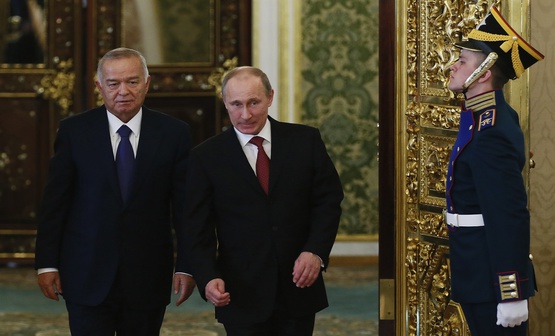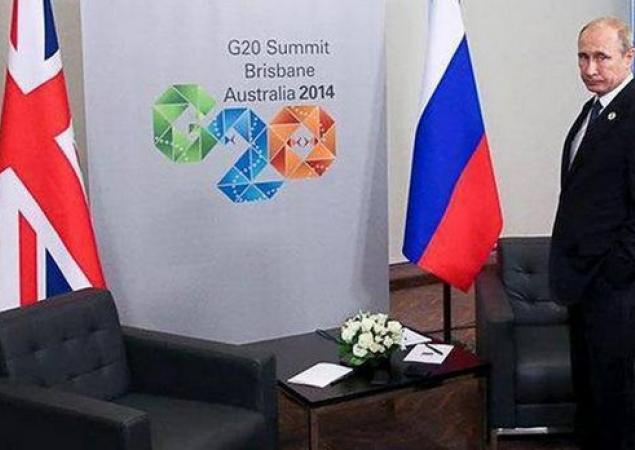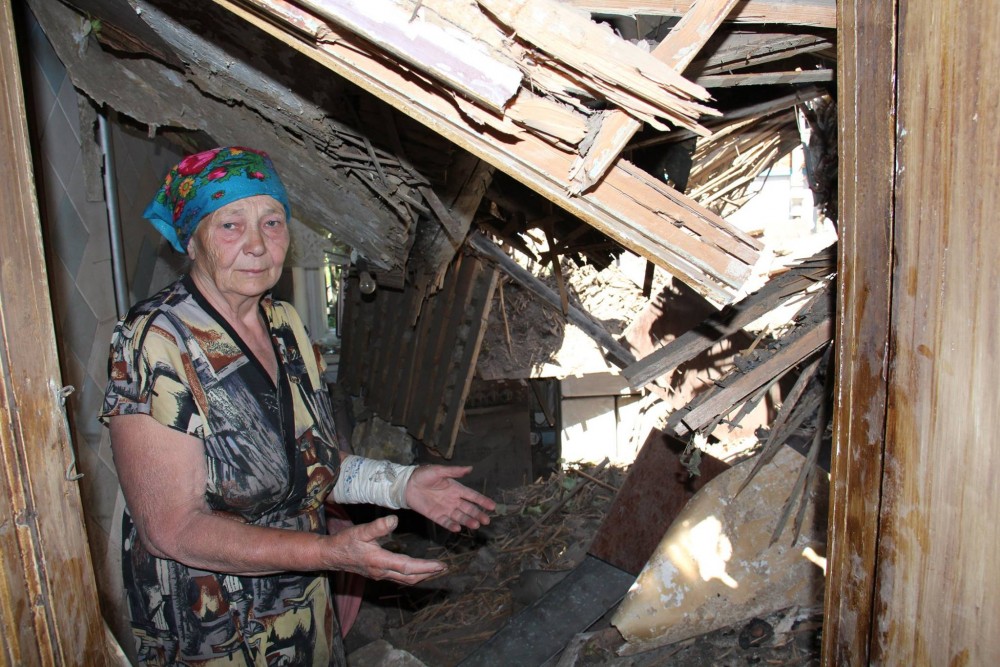The focus of the international media has shifted from Ukraine to Syria, just as Vladimir Putin hoped because the West seems incapable of focusing on more than one issue at a time, Oleh Shro says. But in doing so, the media are failing to note that the Kremlin leader is ready to attack on many fronts to overload the capacity of the West to respond.
Because of that, the Ukrainian analyst says, Western leaders must consider where Putin might move next in order to block him or at least be prepared to respond. If they do, he says, they will be forced to conclude that Central Asia and especially Uzbekistan is high on Putin’s list.
Putin’s readiness to “conduct military actions on two or three fronts and perhaps even more” at one time, Shro says, is explained not by the weakness of his opponents but rather by the fact that his current opponents “do not consider [Moscow] such a serious threat that they must react to it with serious efforts.”
There are three reasons for this dangerous situation, he suggests:
- Russia still has “’the aura’” of a country that until recently was “a reliable and predictable partner of both Europe and the US” and thus can count on Western leaders to hope and believe that it can be returned to the fold.
- Putin is very aware that whatever problems the Russian economy now faces, it has “a simply colossal” resource base, “especially in comparison with its nearest neighbors,” and thus is in a position to act from a position of strength against those neighbors, particularly if the West doesn’t want to oppose him actively.
- Putin’s efforts to restore Moscow’s primacy over the former Soviet space reflect his desire to create a “buffer zone” for himself and his country, one where the values he is promoting at home will bleed over into the neighbors and thus help to keep out the influence of other countries and especially those of the West.
What the Kremlin leader is engaged in then, he suggests, is the organization of a criminal world against the world of law and order. That is stark but it is true: “Russia is not capable of offering the contemporary world an alternative civilizational project.” The only thing it can offer is a Donbas “at the planetary level, the realization of an anti-utopia in the style of Mad Max.”
“If Russia were capable of offering an alternative civilizational project, even a variation on the currently existing one, everything would look different,” Shro continues. “This would be a different work, and the actions of Russia would not recall the actions of powers in the 18th or 19th centuries.” But that is not the case, and the world must eventually recognize this.
Any discussion of “geopolitical buffers around Russia” must include not only Ukraine, Belarus, the Baltics and the Caucasus, but also Central Asia, especially since in recent years, Moscow’s influence in that region has fallen sharply relative to that of China and the United States.
In Central Asia, Shro continues, “the chief and central player is Uzbekistan,” which has played an independent role over the last 15 years because it is both politically and economically the core of the region. Ruled since 1988 by the same leader, Islam Karimov, Uzbekistan had been moving away from Russia.
But “now one can see a reverse process which is connected above all with the cooling of relations with the US and the introduction of a sanctions regime against the leadership of Uzbekistan and even members of Karimov’s family” because of Tashkent’s poor record with regard to human rights.
“In general,” Shro argues, Uzbekistan resembles today’s Russia given its repression at home and problems abroad. And “these circumstances are pushing Uzbekistan into Russia’ embrace, because even China is unwilling to get involved with a country” with so many problems, including water disputes with its neighbors.
Moscow clearly hopes that Tashkent will recognize that its best prospects for the future lie with Russia. “On the one hand, Uzbekistan like Russia, has border conflicts with practically all its neighbors.” And on the other, Uzbekistan is a choke point for the other Central Asian countries because it is through Uzbekistan that most transportation routes pass.
Thus, attracting Uzbekistan to its side is one of Moscow’s major strategic goals because it would allow Russia to reduce or even exclude the influence of China and the US in central Asia, Shro says. The only question now is how that such a shift will happen, by peaceful means or otherwise.
“If [Uzbekistan] makes concessions to Russia, then this will look like peaceful expansion,” but that may not happen given Karimov’s independent streak. And thus it is completely possible that there will be a conflict orchestrated by Moscow to bring Tashkent to heel.
Among the levers Moscow could use would be the financing of local Islamists who have shown themselves to be quite prepared to fight with the Uzbek authorities. Such an approach may be especially likely now given Ukraine and Syria and all the talk about the ISIS threat to Central Asia from Afghanistan.
And consequently, there is another Moscow lever that should not be ignored: the exacerbation of border conflicts in the region followed by Russia’s offer of playing the role of “peacemaker” there. Should that happen, Shro concludes, it would constitute “a new Turkestan campaign” by Moscow.





